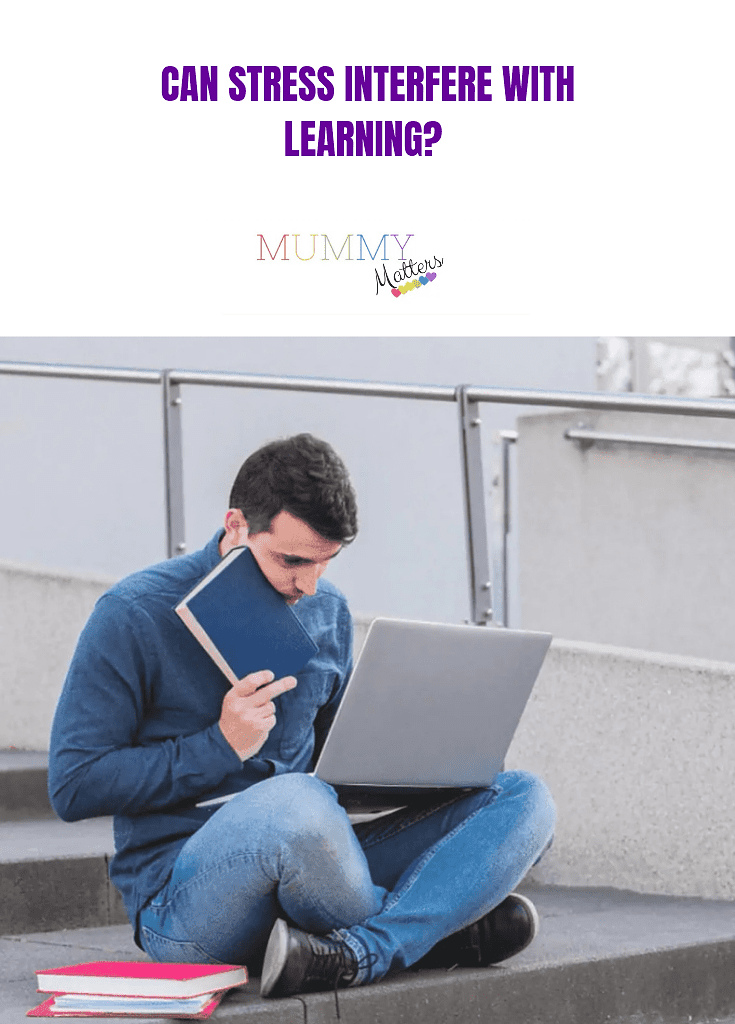The topic of stress and its effect on learning has been extensively studied over the years. Stress is a normal part of life, but too much can seriously affect our ability to think and learn. When we experience stress, there are physiological changes in our bodies as well as cognitive changes in the way we process information. This article will discuss how prolonged chronic stress affects the brain and how it can interfere with learning.
What is Stress?

Stress is an inevitable part of life, but what is it exactly? Stress is a reaction by the body to any demand or threat that requires a response. Physical, physiological, and cognitive changes generally characterize it. Physiologically, stress causes the production of certain hormones, such as cortisol and adrenaline, that prepare the body to take action in the face of danger.
These hormones cause physical responses such as increased heart rate and respiration, sweating, and higher blood pressure. Cognitively speaking, stress can cause anxiety or fear due to perceived threats or demands on one’s time or resources. Stress’s effects are felt mentally and physically; its intensity depends on how an individual perceives any situation. Understanding what causes stress can help individuals find effective ways to manage it before it becomes overwhelming.
Effects of Stress on Learning
Stress is a normal human emotion, but it can have an adverse effect on learning. It has been proven that when individuals are stressed out, their ability to learn and retain information decreases. This effect of stress on learning can be seen in children, teens and adults alike.
Research studies have found that stress affects the areas of the brain responsible for memory recall and problem-solving skills, which are essential to successful learning outcomes. The same research has also determined that cortisol, a hormone released by the body when under duress, can impair cognitive functions such as attention span and concentration levels – both essential components of effective learning.
Therefore, it is critical to ensure proper techniques are identified and implemented to reduce stress levels so that individuals may optimize their potential for successful learning outcomes.
Physiological Changes
Physiological changes due to stress can affect people of all ages, from children to adults. Everyone experiences stress differently, which can lead to various physiological changes throughout the body. Children and teens are particularly vulnerable to experiencing these changes because their bodies are still developing and learning to manage stressful situations, such as during exams and tests at school.
The most common physical symptoms of stress include increased heart rate, nausea, headaches, muscle tension, sweating and difficulty sleeping. When individuals experience these physical symptoms for an extended period or in high-pressure scenarios such as exams or job interviews, they must practice healthy coping techniques so that their bodies do not become overwhelmed by the situation. Some methods for successfully managing stress-related physiological changes include deep breathing exercises and relaxation techniques like yoga or meditation.
Cognitive Changes

Stress-related cognitive changes include slower information processing rates, reduced memory recall, and difficulty concentrating. These changes can be seen in both the academic performance of students as well as general activities such as driving or participating in conversations. Adults, too, may experience these cognitive impairments due to stress from work, family life, or other environmental factors. In addition to disrupting day-to-day functionality, these changes can also lead to sleep disturbances, further exacerbating cognitive deficiencies.
Impact on Memory and Concentration
Stress has long been known to have a major impact on both memory and concentration, especially in the context of learning. Stressful situations can significantly reduce our ability to remember details and focus on tasks. The cortisol hormone released during stressful periods is believed to be one of the main culprits for this effect, as it disrupts sleep cycles and impairs cognitive abilities.
Research suggests that people dealing with severe stress are more likely to suffer from memory impairment and decreased concentration levels, leading to poorer performance in school or work-related activities. Studies have also shown that chronic stress conditions can prevent us from forming new memories altogether, thus hindering our ability to learn effectively over time.
Coping Strategies
Coping with stress can be complicated and overwhelming, but learning how to manage it is possible. There are many different strategies that individuals can use to help them cope with intense feelings of stress. Individuals need to understand that each person responds differently to stressful situations; therefore, different coping strategies work for different people.
One way an individual might learn how to cope with stress is by identifying their unique triggers or what causes them the most anxiety. For example, suppose exam preparation is a significant source of stress for someone. In that case, they might try setting aside designated time slots each day solely dedicated to studying and practising relaxation techniques such as deep breathing or listening to calming music. Other activities like yoga or going on walks can also be beneficial in helping reduce overall levels of stress.
Conclusion: Managing Stressful Situations

Stress is something that many of us face in our lives, and it can be difficult to manage. Managing stress is essential for leading a healthy and productive life. Proper knowledge and understanding can make managing stressful situations much more manageable.
The first step in managing stress is self-awareness – recognizing the signs that indicate stress levels are rising. This could mean feeling overwhelmed, having difficulty sleeping or concentrating, or increasing irritability and anger towards others. Understanding these signs can help you identify when a situation is becoming too overwhelming to handle on your own.
The second step is developing strategies to cope with the stressful situation. These could include taking time out for yourself, talking openly with someone you trust about your feelings or engaging in activities that make you feel relaxed such as exercise or yoga.

